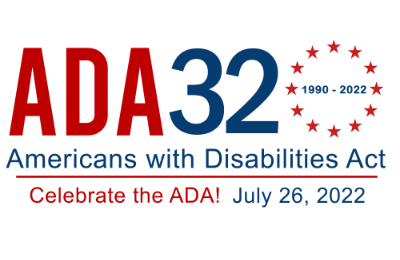Uber logo displayed on a modern, abstract background featuring curved shapes in black, blue, and mint green.
I’ve spent a lifetime advocating for disability rights, fighting for equity, and pushing companies to make accessibility a reality—I’ve seen firsthand how corporations talk a big game about inclusion but fail in practice. That’s why Uber’s recent policy update on service dogs caught my attention.
Uber has always been required by law to allow service dogs, yet enforcement has been inconsistent at best. While matched with Canine Companions® Pico, I documented hundreds of refusals on Twitter/X, confronted drivers, filed complaints—and all too often, the most Uber would do was ensure I wasn’t matched with that driver again. Consequences were minimal, and riders like me bore the burden of proving discrimination over and over again.
Now, Uber is rolling out a feature that allows riders to self-identify as service dog handlers. If a driver cancels after being notified, they receive a warning reminding them that refusal is illegal. “Any driver who violates this policy may permanently lose access to the platform,” says Uber’s Chris Yoon, as quoted in The Verge. That sounds good, right? Except I’ve been here before. The key word is 'may'. Will drivers actually be held accountable, or will this be another slap on the wrist?
Uber’s history gives me reason to doubt. The system still leaves room for discrimination. Drivers can cancel rides under false pretenses—claiming they couldn’t find the rider, going offline, or making other excuses to avoid accountability. I and many others have seen this playbook. Meanwhile, service dog handlers are forced to navigate awkward confrontations and potential ride denials just to get from Point A to Point B. It get's exhausting. No handler should be forced to leave their medical equipment at home to make it on time to their destination.
This new feature seems helpful, but it places even more responsibility on disabled riders to preemptively disclose our status, creating a record of our attempts to comply. But why should it be on us to reduce the risk of discrimination? Why aren’t drivers trained, vetted, and monitored more closely to prevent these issues in the first place?
To be clear, I want to believe this marks a real shift. Uber claims this feature was developed “in collaboration with leading advocacy organizations and service dog handlers.” Organizations including National Federation of the Blind, The Seeing Eye, and American Council of the Blind. That’s a step in the right direction. But my optimism is cautious. Until we see consistent enforcement—until drivers who break the law actually face removal—this is just another policy on paper, not a lived reality.
So I ask: What would true accountability look like to you? Have you faced service dog refusals in rideshare services? What changes would make a real impact?





